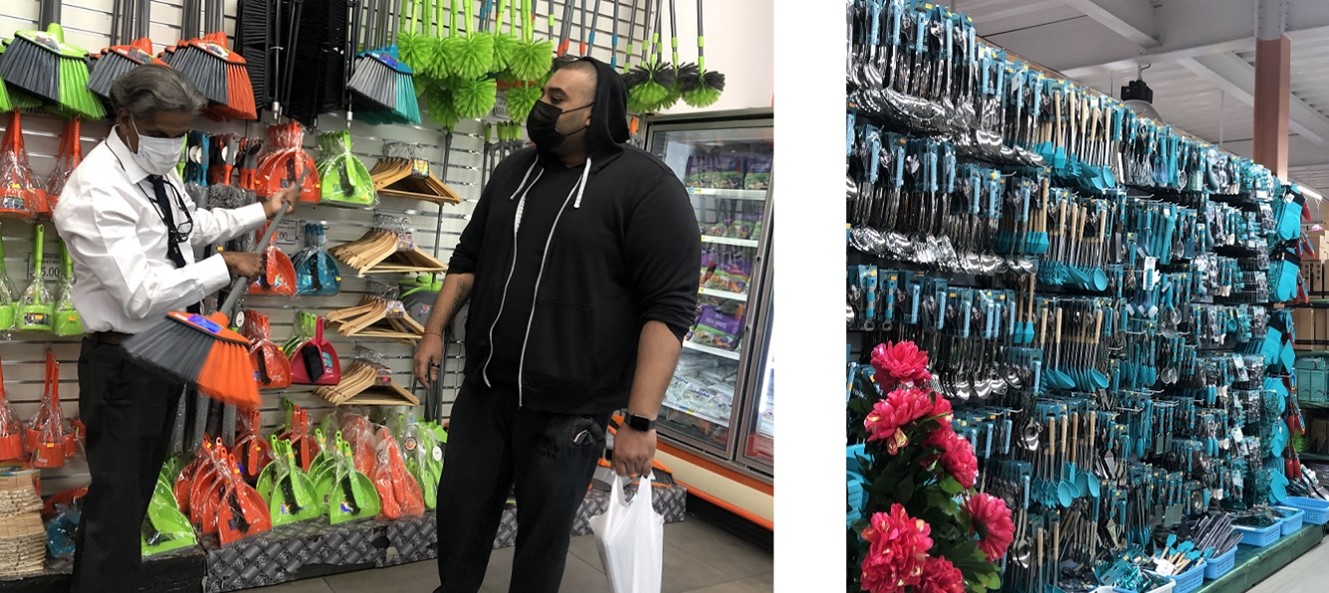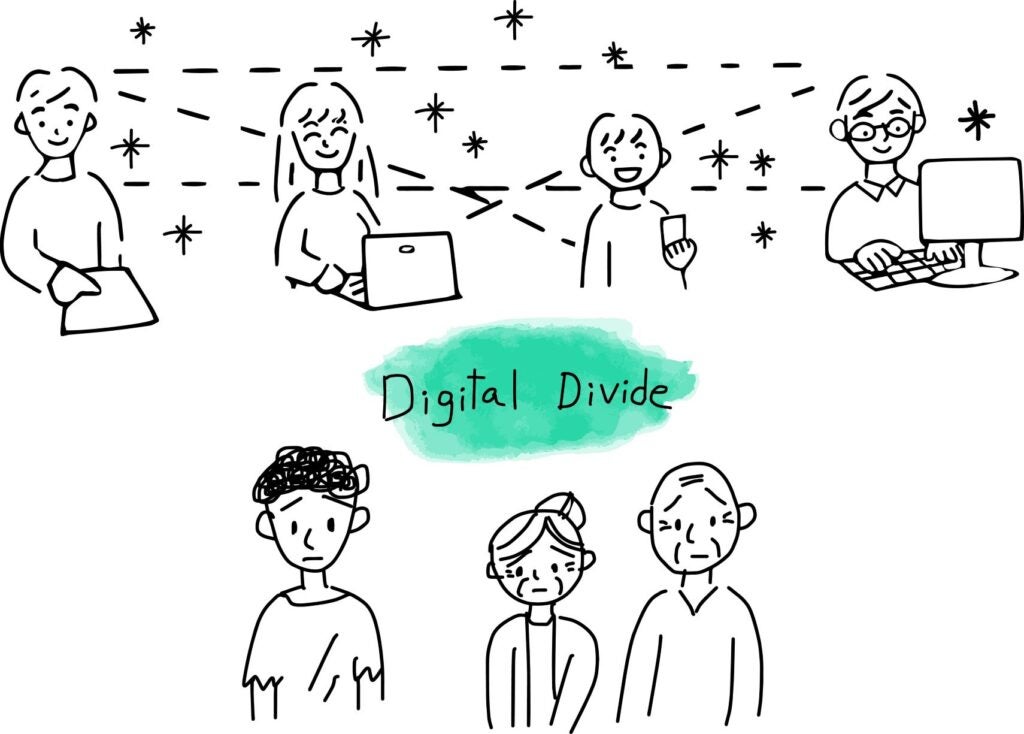
Without question, the digital grocery ecosystem is shaping the future of retail. E-commerce is growing and rapid rates of digital grocery transformation continue across the globe. Propelled by the COVID-19 pandemic, the digital economy is emerging in Latin America and the Caribbean, and vendors need to be responsive to the opportunities and risks associated with disruptive technologies to ensure the medium and long-term prosperity of their businesses.
Today’s grocery system has come a long way from the days of the traditional brick-and-mortar store, but the glaring question we must ask is who has the grocery system come a long way for? The digital divide is looming over retailers in Trinidad and Tobago that want to digitally advance, indicating that while some have access, many do not.

Digital transformation is a formidable tool that helps countries, cities, corporations, and individuals to build a better future. The Network Readiness Index 2021 (NRI) assesses and scores how countries are leveraging information technologies to be future-ready with a focus on four fundamental dimensions: Technology, People, Governance, and Impact. It is the looking glass within which all nations and ecosystems can reflect upon their areas of strengths and opportunities and examine ways to improve the growth and well-being of society and the economy. The main concept underlying the NRI model is that our collective future will require a harmonious integration of people and technology. To ensure the effectiveness of this integration, appropriate governance mechanisms will have to be implemented to address issues related to trust, security, and inclusion. The NRI reported that the top 3 countries in the world most ready for digital transformation were the Netherlands, Sweden and Denmark while Trinidad & Tobago came in at number 85 out of 130 country participants. The areas or sub-pillars of the country’s readiness which scored the lowest included: adoption and investment in emerging technologies, government promotion of investment in emerging technologies and the legal framework’s adaptability to emerging technologies and cybersecurity.
Recognising the need for a transformed digital ecosystem, the Government of Trinidad & Tobago, (GoRTT) established the Ministry of Digital Transformation (MDT) in July 2021 with a focus on developing and advancing the country’s digital agenda. At a local level, digital transformation is the main objective of the IDB Country Strategy with Trinidad & Tobago (2021- 2025). Considering the digital transformation agendas of both entities, and the need for systemic change in the country, now is the time for the IDB Group to collaborate with the government, public and private stakeholders to support the achievement of a successful digital transformation for all players in the local market and improve our Network Readiness Score. The experience of IDB Invest in supporting the public-private partnerships needed for digital transformation, as well as IDB LAB’s experience promoting the creativity and innovation of entrepreneurs are great resources to help chart a good path and help achieve high quality digital infrastructure to promote digital inclusion and social and productive development.




This blog series showed that local vendors from different grocery sectors can successfully operate through different stages in the digital grocery ecosystem. Supermarket giant Ravil Sookhoo (Case 1) showed us how a grocery right here in Trinidad & Tobago can successfully adopt the ecosystem, increase revenue, and expand the business. Smaller retailers like D Market Movers (Case 3), who have operated as an online grocery for over a decade, may have not fully engaged in all the processes and enablers of the ecosystem but still successfully exist in the digital world using automation and manual processes. We discovered that not everyone stands equal on the digital platform, particularly the small vendor (Case 2). And in our last case, Terre Bénie showed us that using social media only, and remaining as a specialty product, brick-and-mortar store using omnichannel space has been the most viable option for their business to succeed (Case 4).
Closing the gap
To flatten the playing field and increase equity, it is critical that small firms can access core digital tools as an entry point to the digital transition and help narrow the gap between SMEs and larger vendors in the adoption of more sophisticated technologies. Technology is contributing to digital divides as larger and more digital-savvy vendors are more easily able to step up to more advanced digital practices while most SMEs don’t know where to start. If the enabling environment is not set up for all vendors to digitally transform, only those with the capital or know-how will survive and the rest will remain in the brick-and-mortar or farmer’s market.

Our ability to prepare for a world in which technology and innovation are better governed is the key to making our future better. Successfully adapting and harnessing transformative effects would pay long-term dividends for economies in terms of growth, innovation, and social inclusion. It is critical that the outputs of the IDB Group and stakeholder collaboration include specific and complementary programs to support digitalization to exploit its social, economic, and productive potential, increase the resilience of the productive sector, and develop the skills workers need in the medium term.
Tackling both global digital divides with inadequate NRI scores, and national digital divides among local vendors may seem daunting, but it is the only way Trinidad & Tobago can successfully transform digitally. As we navigated through this case series, glaring gaps in digital grocery transformation were identified in the current, local environment. The NRI model indicates that our collective future will require a harmonious integration of people and technology; this will require a collective effort. One can only deduce from the evidence of this series that until all have crossed over the digital divide, none have crossed, and many will have to be carried. The work to be done by the Government, private sector, local stakeholders, and donors such as the IDB Group in the coming years will truly shape the future of retail and help enhance the digital grocery ecosystem in Trinidad & Tobago.

Leave a Reply